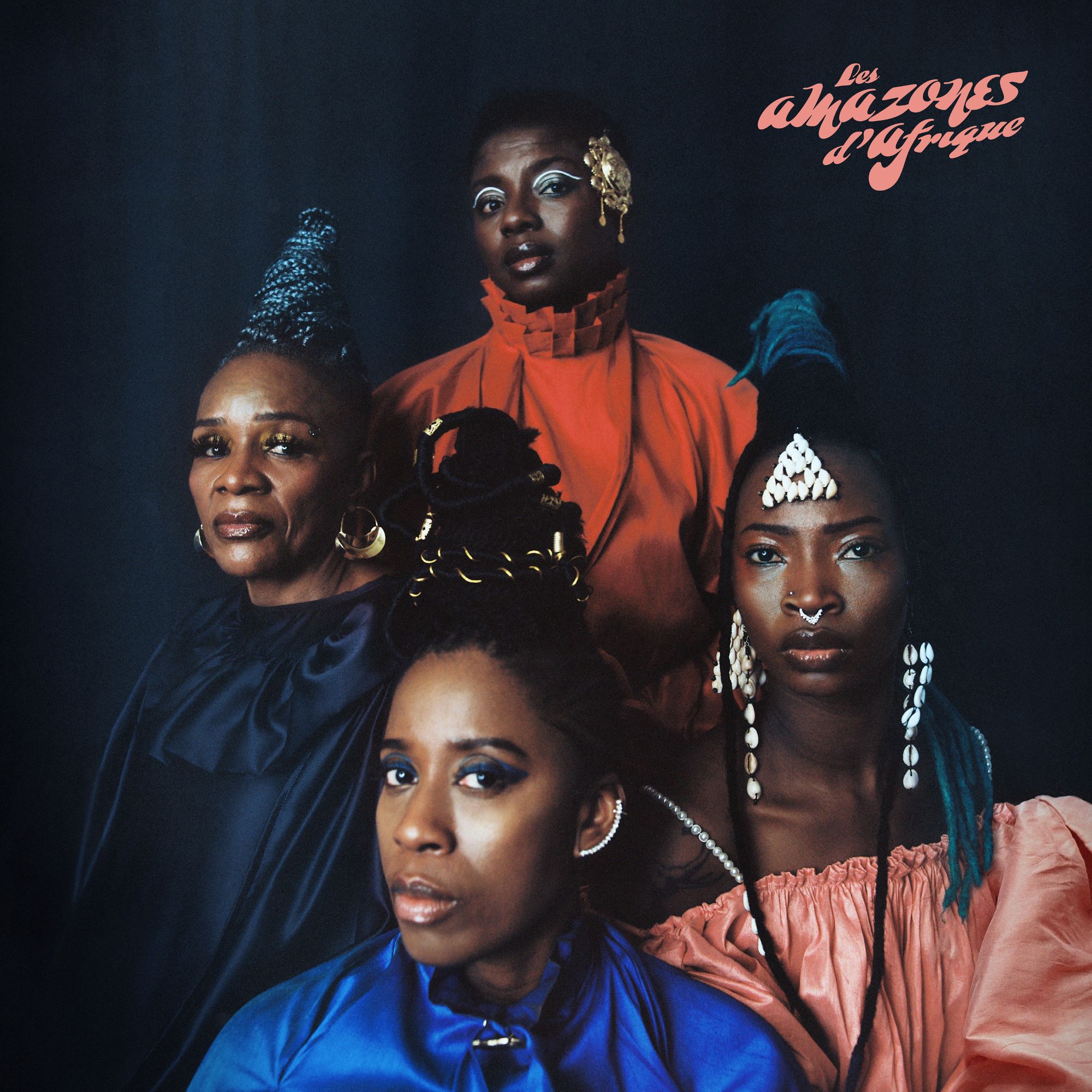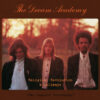After encouraging women to play the kora (a West African stringed instrument previously reserved only for male performers) on 2017 debut Republic Amazone and crusading against female genital mutilation on follow-up Amazones Power, ever-changing but consistently impactful supergroup project Les Amazones d’Afrique are not quite as controversial on their third album, the enthralling and replayable Afro-Electronic Musow Dance, with their powerful activist messages about womanhood being less specific and arcane. Thus leaving room for one to fill their own experiences to slightly vaguer concepts but also helping to expand this project further beyond the African continent.
Tied together by experienced Irish producer Jacknife Lee (who has worked extensively with acts such as U2, Snow Patrol and Bloc Party) and Malian founding member of Les Amazones d’Afrique Mamani Keita, Musow Danse carries on the astonishing feat of using multiple (often obscure) African languages across an album – and in many cases within one song – to connect the collective anguish and struggles of women across the continent. Fans of acts such as Ibibio Sound Machine will also appreciate the juxtaposition between traditional African rhythms and vocal techniques with clean, modern yet ambitious electronic production.
Opening title track ‘Musow Danse’ – which in the Mali Bambara language means Women’s Dance – begins the album with the same kind of choral force as ‘Circle of Life’ from The Lion King soundtrack. It’s a great introduction to the record as it contains four singers vocalising in their own rooted languages: Mamani Keita sings in the aforementioned Bambara language, Benin’s Fafa Ruffino performs in Fon, Ivory Coast vocalist Dobet Gnahoré chants in Bété, while Kandy Guira from Berkina Faso belts out in Mooré. But the English translation expresses that they wish for their messages to goes further than just Africa: “Hey, WOMANHOOD! Hey, WOMANHOOD! We’re calling on women from around the world.” A holding-hands together rhetoric in the words: “It’s the woman who will help the woman. It’s the woman who will welcome the woman. It’s the woman who will take care of the woman.”
Despite the majority of listeners not being able to understand the original language Les Amazones d’Afrique appear to cleverly use homophones that, along with the spirited mood, make one feel like they understand what is being expressed. On the opener, they sing “Iye iye, a ye wuli,” which sounds as if they are asking: “yeah yeah, are you willing?” ‘Kuma Fo (What They Say)’, which is sung in even a higher ranger of languages (six this time), is about women’s freedom of speech. The pairing of the African-language word “nkento” with a stuttering singer, makes one think it sounds like they are hesitatingly saying “I can’t talk.” The usage of an alarm sound further adds to track’s urgency – the Fever-Ray-if-she-did-African-music ‘To Be Loved’ is another track that calls for immediacy, although this time its about expressing love with your fellow comrades.
Like the album’s opener ‘Kuma Fo’ details how the incredibly important existence of women – or the Musow Danse on earth – can have a crucial domino effect on society: “You give life. To educate a woman is to educate a village. To educate a girl is to educate the world.” Add a little irony to it and you get the lyrics from Pidgin-language ‘Bobo Me’: “It’s a woman who gives birth to powerful men. It’s a woman who gives birth to great scholars”. The “woman who will take care of woman” lyric at the beginning of the album is the same style of writing.
‘Kuma Fo’ is also a track that further highlights Musow Danse‘s aim to appeal more universally. As the vocalist sings: “I travelled to the North People. From the North [they] told me that women have dignity. I travelled to the West People. From the West [they] told me that women have dignity.” Ewe-language earworm ‘Flaws’ – which has moments that spring Jan Hammer’s ‘Crockett’s Theme’ and M.I.A’s ‘Galang’ to mind – continues this theme with the vocalist claiming to have travelled the world and seen flaws all kinds of people (name dropping places in Mali, France, as well as Europe as a whole). Ultimately the goal is the celebrate these flaws, rather than feel ashamed by them.
This is one of the cases of Musow Danse trying to promote positivity and embrace progression, albeit aware that there is more to be done, along with the afrobeat ‘Queen Kuruma’: “Let’s celebrate. Because our life in the past, Because life today has totally changed. The mothers are standing. For their little daughter’s rights. Yes, we are not slaves anymore”. The track features a taster of the tribal singing of Dobet Gnahoré, a stunningly dynamic performer who is at her full force on ‘My Place’. You probably won’t hear another song like ‘My Place’ this year. An undeniable highlight from Musow Danse, ‘My Place’ hears Gnahoré spiritually calling over the top of undulating acid house beats and just to make things more unique, cow-mooing suggests an animal has been summoned. The song has the Ivorian describe her perfect paradise: “There is a place in my mind / It’s calm, it’s peaceful / This is my place of peace / This is my refuge / It’s my sweetness. There is light.” Whether this describes the society that the all-female 17th-19th military Dahomey Amazones – of which the Les Amazones d’Afrique are named after – is up for debate but what is for sure is that this meaningful collective are sounding more hopeful this time around.




